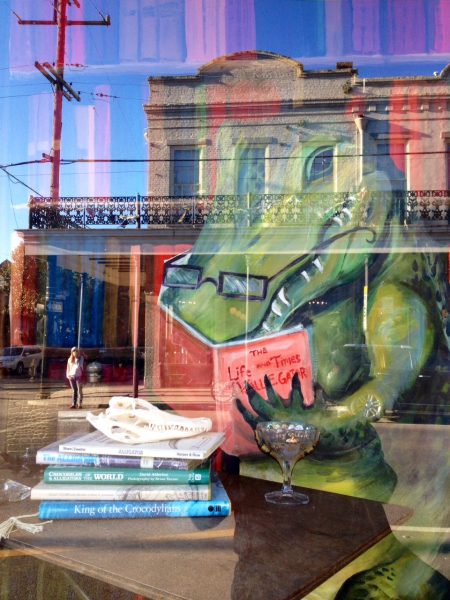I was raised in Northeastern Ohio, which seems a world away from the Badlands of South Dakota, yet they are both technically part of the Midwest. Do you feel that there’s a certain “Midwestern-ness” in South Dakota that can be found in other parts of the Midwest? How do you feel the landscape in “Point of Reference” is reflected in this family and their traditions?
Many people don’t realize the raw beauty that can be found in the Midwest. The region is often considered “flyover territory” by the rest of the country. The landscapes of South Dakota and Ohio—and the states in between—are severe, and haunting, and open. In the case of the Badlands, the topography is nearly alien. In general, the Midwest has less of a regional identification than, say, the South or the West Coast, so it seems to focus on the ultra-local, rather than on becoming a national center of art, commerce, etc. So, in the Midwest, more than any other region, the land shapes the people. This is apparent, I think, in “Point of Reference,” whose characters reflect the harsh and open landscape. The land gives Jill’s brother space to take up a weapon and walk for miles in solitude, surrounded by nature. In a different region, this act would be considered aggression or violence. In the Midwest, however, the brother’s hunt is an expression of self.
Jill and her brother seem to reject what food or comfort their parents attempt to offer in favor of what they can provide for themselves, like in the scene after the gift exchange. “My parents pulled the couch to the fireplace and sat on either side of me. They opened a bottle of wine. I was only nineteen but I was well on my way to something, it was assumed, so they poured me a glass of wine I did not drink.” Can you speak to the nature of their family dynamic?
In “Point of Reference,” Jill and her brother experience overwhelming social pressures originating from outside the family circle. The parents, although caring, are oblivious to the sources, symptoms, and solutions of their children’s pains. The siblings turn to nature, together, to confront their separate demons. Jill and her brother are the type of people for whom nourishment from the land itself can precipitate a reckoning in a way that communion with humans cannot.
It’s currently the holiday season. Did you receive predictable gifts from your family when you were younger? Did you ever ask Santa for something outrageous, like a hunting spear? Did you get one?
The Santa of my childhood specialized in cowboy boots. I never asked—or received—anything outrageous like a boar spear, but I like to think Santa would have indulged me had I thought to ask for a “decorative” weapon.
The end of the story sees the return of Jill’s brother with his kill. Have you ever been hunting? What’s the most exotic animal you’ve ever eaten?
I was raised in a region where hunting is tradition. My dad, grandfathers, uncles, and many of my female friends hunted—or bow hunted—for game. Although I’ve never been hunting, I grew up seeing antlers mounted on the walls, stuffed bobcats poised in eternal half-pounces, and deer carcasses strung up in the garage, waiting to be gutted. My grandma makes a mean deer chili, in fact! The most exotic animal I’ve ever tasted is porcupine. Unlike Jill, though, I did not get very far with the meal. The first bite tasted, predictably, like chicken. The second mouthful had the flavor of plastic.


